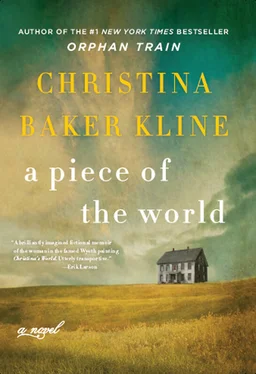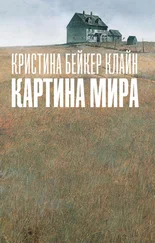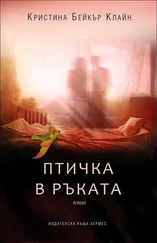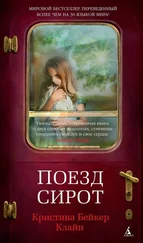Bridget Bishop, waiting to be sentenced.
Waiting for death.
I roll onto my back again. Shadows of the lace curtains, moving in and out with the wind, make the ceiling a roiling sea.
When Andy comes in the next morning, I don’t tell him I went upstairs. He says hello, we chat for a few minutes while I stir up drop biscuits, and he walks into the foyer. Stops. Comes back to the kitchen door with his hands on his hips. “You went up.”
I spoon the dough onto a flat metal sheet, dollop after dollop.
“You did,” he insists.
“How’d you know?”
He sweeps his hand up with a flourish. “Path through the dust all the way to the top. Like the trail of a giant snail.”
I laugh drily.
“So what’d you think?”
I shrug. “I don’t know about art.”
“It’s not art. It’s just you.”
“No, it’s not. It’s you,” I say. “Didn’t you tell me that once? That every painting is a self-portrait?”
He whistles. “Ah, you’re too shrewd for me. Come on. I want to know what you think.”
I’m afraid to tell him. Afraid it will sound vain or self-important. “It’s so . . . dark. The shadows. The black dress.”
“I wanted to show the contrast with your skin. To highlight you sitting there.”
Now that we’re having this conversation, I realize that I’m a little angry. “I look like I’m in a coffin with the lid half shut.”
He laughs a little, as if he can’t believe I might be upset.
I stare at him evenly.
Running his hand through his hair, he says, “I was trying to show your . . .” He hesitates. “Dignity. Solemnity.”
“Well, I guess that’s the problem. I don’t think of myself as solemn. I didn’t think you did, either.”
“I don’t. Not really. It’s just a moment. And it’s not really ‘you.’ Or ‘me.’ Despite what you think.” His voice trails off. Seeing me struggle with the heavy oven door, he comes over and opens it for me, then slides the baking tray of biscuits in. “I think it’s about the house. The mood of it.” He shuts the oven door. “Do you know what I mean?”
“You make it seem so . . .” I cast about for the right word. “I don’t know. Lonely.”
He sighs. “Isn’t it, sometimes?”
For a moment there’s silence between us. I reach for a dishrag and wipe my floury hands.
“So how do you think of yourself?” he asks.
“What?”
“You said you don’t think of yourself as solemn. So how do you think of yourself?”
It’s a good question. How do I think of myself?
The answer surprises us both.
“I think of myself as a girl,” I say.
1914–1917
Everybody in town seems to know about the envelopes postmarked Massachusetts. I can tell that Bertha Dorset has been gossiping by the way she smirks and lifts her eyebrows when she hands me the mail. When I mention it in a letter to Walton, he writes, “I’m sorry that anyone should bother you with their curiosity,” and offers to use Ramona as a foil—she can address the envelopes from Boston, he says. “Then they wouldn’t know that I was writing. But I’m afraid they would hear of it some other way.”
I decide not to let it bother me. People will always talk. At least now they have good reason.
In one of his letters, Walton says that he has tried, and failed, to grow sweet peas, his favorite flower, in his Cambridge apartment. In April, months before he is due to return, I send away for mail-order sweet pea seeds and ask Al to build a trellis. When the packet arrives, I soak the seeds overnight in water, drain them and chip one end with a sharp blade, then plant them in the manure-rich dirt. I feel like Jack anticipating his beanstalk.
Sprigs sprout, grow into skinny stalks, and race up the lattice. By mid-June, when strawberries are ready to harvest, the sweet peas begin to flower. Though Walton has written to let me know the week he’ll be back, and though Sam reports an in-town sighting, I am startled to see him coming up the path on a warm morning with a cluster of sweet peas in his hand and a wide grin on his face.
“You’re a sight for sore eyes!” he says when he arrives at the kitchen door, pulling me into a quick embrace. Handing me the bouquet, he says, “I know how much you like sweet peas,” and I want to say, no, you’re the one who likes them; you know how much I like you . But I am oddly touched that he has conflated his feelings with mine.
“I have a surprise,” I tell him and make him close his eyes before leading him to the trellis. “Open.”
He gives me a rueful look. “I’m sorry. Owls to Athens.”
“Great minds,” I say. “I grew these for you.”
“For me?”
I nod.
He moves closer, grasps my hand. “There’s enough beauty here to lure me without sweet peas.”
Welcome back, I think.
I’VE NEVER PAID much attention to how I look, but all of a sudden I’m acutely aware of it. I notice the soiled patch on my blue chambray dress, the frayed sleeves of my muslin blouse, the dirty hem of my skirt. I run my fingers through my hair, separating it into oily strands. The entire family bathes on the third Monday of each month in the same water in the kitchen, oldest to youngest (though in the summer the boys, never much for baths to begin with, get by with a swim in the lake or the ocean). Every few days I wash my face and under my arms with a wet cloth dunked in a pot of water warmed on the range. But that, I decide, isn’t enough. I drag the old galvanized tin tub from the woodshed, with Al’s help, and we fill pots with water from the pump in the pantry and carry them to the range to heat. When the water’s close to boiling, we dump it in the tub and add buckets of cold water. Then I send him out of the room.
In the tub I rub castile soap across my arms, my legs, my pale stomach, the downy fur under my arms and between my legs. Dipping my head, I wet my hair and run my soapy hands through it, my fingers strange on my scalp, like someone else’s. After rinsing my hair, I pour apple cider vinegar into a cupped hand, as Mother taught me, and run it through the strands until they squeak. The water is soothing on my knotted muscles and floating arms, free of gravity’s pull. My legs are floating too. When I was younger, I would bathe in the pond with my brothers sometimes, reveling in the weightlessness, the momentary release from pain. Now the bath is the only place I can find this relief. I shut my eyes, savoring it.
Leaning back against the cold tub, I fantasize about what it would be like to leave this place. I envision the moment as if I’m a character in a story: A young woman rises while the rest of the house is asleep, gathers some items into a bundle, makes her way down the stairs as quietly as she can (as she is accustomed to do, waking before the others to stoke the fire and prepare breakfast). She laces her shoes in the shadows of the front hall and opens the door to the outside. Light on her feet as a ballerina, weightless as a butterfly, she slips down the steps and around the corner, beyond the house and the barn to the automobile that waits out of sight, a young man behind the wheel. (Walton, of course. Who else would it be?) He takes her bag, tosses it over the seat. In her bag: a chambered nautilus, an empty picture frame decorated with shells that awaits a moment worth remembering. Almost everything else she leaves behind, bits and pieces of a life outgrown. Whatever she’ll need in the future can be found where she’s going.
AS THE SUMMER progresses we fall into our routines from the year before: boating with the Carles, clambakes on the rocks by Kissing Cove, picnics in the meadow. One day, as we’re meandering down to Bird Point, he says, “It would be terrific if you could come to Boston this fall.”
Читать дальше
Конец ознакомительного отрывка
Купить книгу












